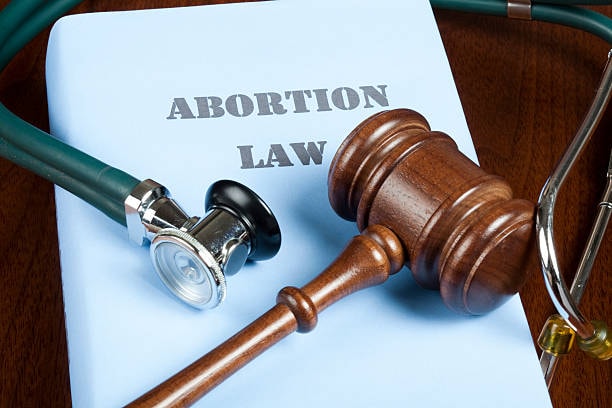Abortion NSW was decriminalised in Australia in 2019. NSW Parliament passed the bill decriminalising abortion which overturned the 119-year-old law. Passing the bill is a huge step forward for women in this generation.
In other Australian states like Victoria, Tasmania, and Queensland, abortion is already legal. The new law on abortion NSW puts trust in women to make the right decisions for their own bodies. Moreover, it provides more accessible healthcare for women as well.
Now that abortion NSW is legal, let’s dive into the particulars of the new legislation: the Abortion Law Reform Act 2019.
Abortion NSW: Crimes Act 1900
Before we discuss the Abortion Law Reform Act, let us first peek into the old abortion provision under the Crimes Act 1900 NSW. The Crimes Act stated that any person who “unlawfully uses an instrument or other means” with the intention to force a miscarriage will face a 10-year imprisonment.
In NSW, abortion is not absolutely unlawful. This is because the law punishes only the unlawful act of forcing a miscarriage. Doctors and other authorised persons were allowed to perform medical abortions or surgical abortions before the Reform Act was passed.
In NSW, most abortions are performed under 12 weeks of pregnancy in abortion clinics or an approved health facility. General practitioners can provide an early medical abortion or surgical abortion after completing a training program.
The widely known doctrine “Levine Ruling” made it possible for doctors to perform abortion because Judge Levine ruled that abortion is lawful when the medical practitioner honestly believes that the abortion is a necessity in order to preserve the life of mothers who are at the risk of losing their life or who are in situations that are detrimental to their physical and mental health.
However, this did not eradicate the possibility of prosecution of medical practitioners because abortion was still an effective provision under the Crimes Act 1900. Thus, with the enactment of the Abortion Law Reform Act 2019, certain guidelines as to the conduct of abortion further advances women’s rights.
Abortion NSW Law Reform Act 2019
What’s new with the Abortion Law Reform Act 2019? The Act focuses on three main objectives:
- To establish a health-centered approach for termination of unplanned pregnancy.
- To support a woman’s right to health, including reproductive health and autonomy.
- To provide clarity and safety for registered health practitioners who provide termination of pregnancy.
Under the Act, the conduct of abortion by a registered health practitioner must satisfy the following requirements:
- The woman on whom pregnancy termination is to be performed must not be more than 22 weeks pregnant.
- The woman must give her informed consent to the reproductive health clinic practitioner
Exception: if it is an emergency, the patient’s informed consent need not be obtained.
- There must be an assessment by the medical practitioner before performing the medical procedure if counselling would benefit the patient.
- The practitioner must comply with any guidelines issued by the Health Secretary in relation to terminations.

What if the Termination Is at More Than 22 Weeks?
The Act still allows termination at more than 22 weeks. However, such termination may only be performed:
- By a specialist medical practitioner.
- At a hospital controlled by a local health district or statutory health corporation or another facility approved by the Health Secretary.
A specialist medical practitioner is one who is:
- a medical practitioner who hold specialist registration in obstetrics and gynecology, or
- a medical practitioner who has other expertise that is relevant to the performance of the termination, including, for example, a general practitioner who has additional experience or qualifications in obstetrics.
Additionally, here are the requirements for a specialist medical practitioner to perform a termination procedure on a patients who is more than 22 weeks pregnant:
- The practitioner must obtain informed consent for the procedure.
- The practicioner must provide all necessary information to the patient about access to counselling, including publicly-funded counselling.
- The practitioner must consider that, in all circumstances, there are sufficient grounds to perform the termination. The practicioner must consider the following factors to make the assessment:
- Relevant medical circumstances
- The patient’s current and future physical, psychological and social circumstances, and the professional standards and guidelines that apply to the practitioner in relation to terminations.
- Advice from the hospital advisory committee in relation tot ermination, if any.
- A consultation with another specialist practitioner who also considers that there are sufficient grounds for the termination.
But if the case is an emergency situation (in order to save the patient’s life or the life of another foetus), any practicioner at any hospital may perform the abortion NSW. Thus, any person who is a medical practitioner may perform a termination procedure without the necessity of complying with the abovementioned requirements.
What Does Informed Consent Mean?
To simplify, informed consent is the giving of consent based on facts that provide important information regarding a particular decision. Under the Abortion Law Reform Act 2019, before deciding to get an abortion, you must know about:
- How the procedure happens
- The possible dangers and risks of the procedure.
If you are under 16 years of age, the doctor will ask you certain questions regarding your understanding of the procedure and what it will mean to you. Based on your answers, the doctor will determine if you are mature enough to comprehend the consequences of the procedure. Thus, you can consent to abortion on your own.
If the patient is intellectually challenged, the doctor will determine if it is in their best interest to have an abortion. If it is, then, the guardian must make an application to the Guardianship Division of the NSW Civil and Administrative Tribunal.
Abortion NSW: Where Can You Get Help?
If you need to know more about the abortion NSW procedure or if you need support, here are some resources for you:
- NSW Pregnancy Choices Helpline (NSW Health) or 1800 008 463
- Family Planning NSW Talkline or 1300 658 886
- Family Planning NSW client factsheet
- National Relay Service (for deaf people) – 13 36 77
- TIS National’s immediate interpreting service – 131 450
- Visit your nearest Family Planning NSW clinic
- Children by Choice

Seek Legal Assistance from JB Solicitors
The establishment of a new legislation as a replacement of an old one can be confusing for some people. Thus, JB Solicitors’ legal experts in Australian criminal laws can help you understand the implications of the new Abortion Law Reform Act 2019.
If you have questions or clarifications regarding the legal implications of the new abortion NSW law, feel free to drop a message or inquiry through this link. You can also schedule a consultation with us if you wish to have a more comprehensive discussion regarding your case.
